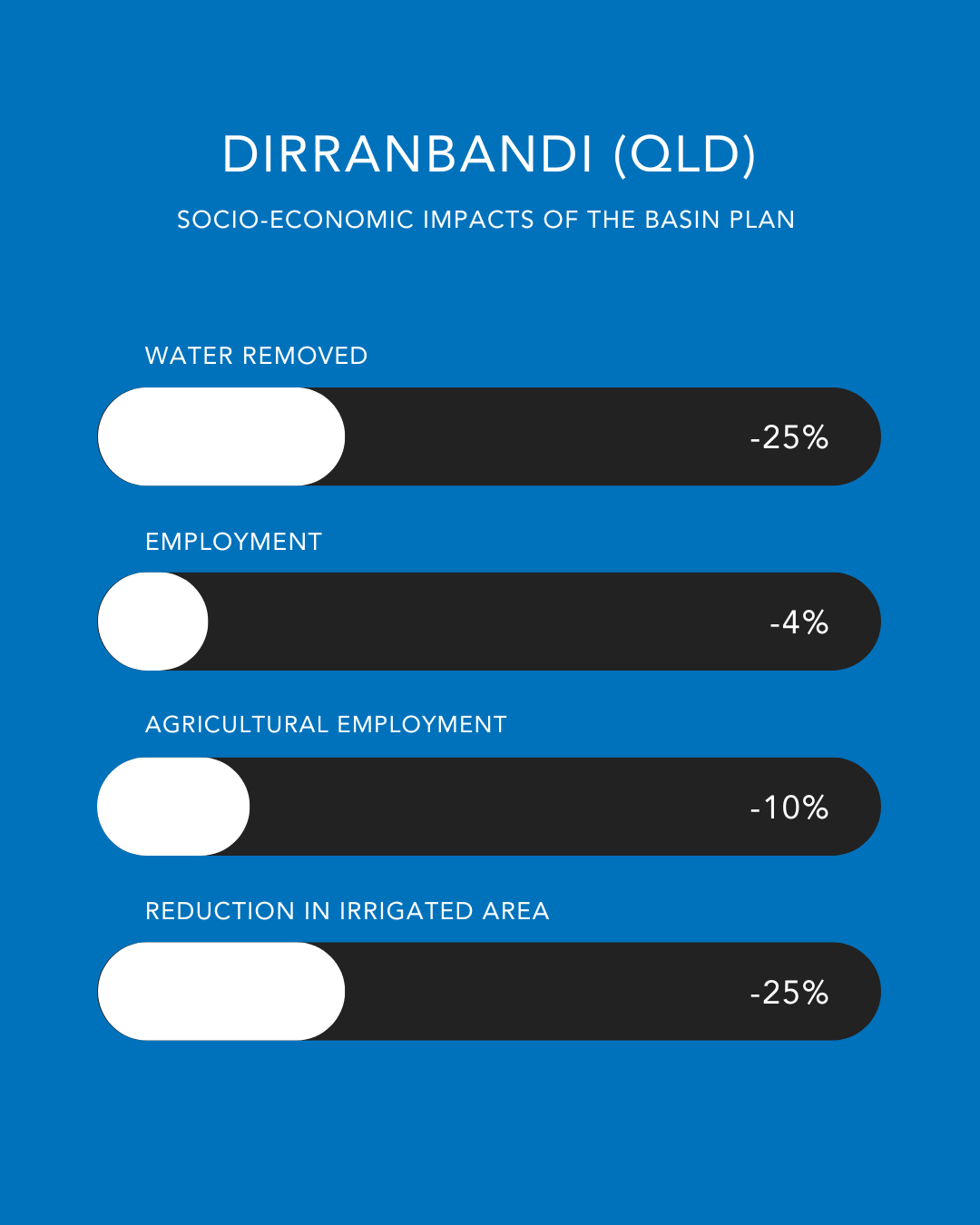Socio Economic
It is critical to understand and assess socio-economic outcomes from water reform. This includes not only farmers and the agricultural sector, but the communities who rely upon irrigated agriculture.
Water reforms which reduce the availability and affordability of water for irrigation have significant flow-on or ripple effects across communities. Less water for farming flows through local communities to mean less local employment, decreased expenditure at local businesses, less children at schools and thus less teachers, less services within communities (such as access to healthcare), and less participants to form local sporting clubs. This is known in economics as the 'multiplier effect'.
The below resources provide key information on socio-economic impact assessment from water reforms.
















